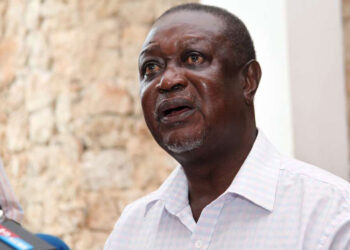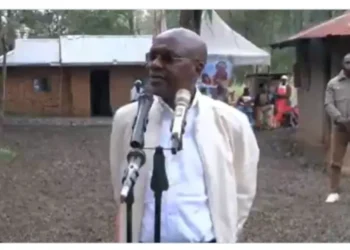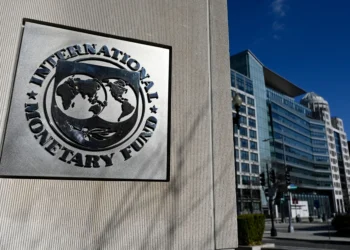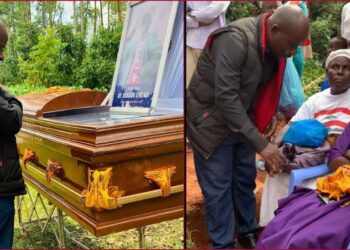President William Ruto’s Sh1.2bn church project at State House sparks debate as Kenya taxpayer funds church, with critics saying there will be no separation of church and state in Kenya because Ruto is an evangelical Christian.
The State House Nairobi church will shield 8000 congregants, with supporters claim it is Ruto’s 2027 election strategy as Kenya faces economic challenges in 2025. Ruto’s faith-based politics drew Skair Architects to the State House to draw the Sh1.2 billion structure amid Kenya’s public debt crisis.
In a move that has ignited widespread debate, President William Ruto is overseeing the construction of a massive 8,000-seater church within the grounds of State House, Nairobi, at an estimated cost of Sh1.2 billion.
The project, designed by Skair Architects Limited, features a cathedral-like structure with twin crosses and clerestory-style windows, as revealed by architectural plans obtained by the Daily Nation.
While Ruto has long emphasized his evangelical Christian faith, the initiative has raised questions about the separation of church and state, fiscal responsibility, and the use of taxpayer funds at a time when Kenya faces economic challenges.
The church, located near the presidential helipads, is part of Ruto’s vision to integrate religion into governance, a stance he has championed since his days as Deputy President.
In 2022, he vowed to build a larger church if elected, following criticism of a chapel he constructed at his Karen residence. During a January 2025 service at the United Pentecostal Church in Dagoretti North, Ruto hinted at the project, describing it as a “special field” for religious leaders, inviting clergy to bless it upon completion.
However, the State House has remained tight-lipped, declining to respond to queries about the project’s funding and constitutionality.
Public reaction has been polarized. Critics argue that the Sh1.2 billion expenditure is unjustifiable when schools lack capitation, hospitals face medicine shortages, and public debt soars.
Others, however, see it as a reflection of Ruto’s faith-driven leadership, with supporters defending his right to prioritize religious values in a predominantly Christian nation.
The project has also drawn legal scrutiny, with constitutional lawyer Kibe Mungai arguing it violates Article 8 of Kenya’s Constitution, which mandates the separation of state and religion.
Critics contend that the church, built within the symbolic seat of national unity, risks endorsing Christianity over other faiths, potentially alienating Kenya’s diverse religious communities.
The Kenya Conference of Catholic Bishops, already critical of Ruto’s administration for unfulfilled promises and over-taxation, has intensified scrutiny by rejecting a $40,000 donation from the President in November 2024, citing ethical concerns.
Ruto’s history of leveraging religion for political mobilization is well documented. His 2022 campaign leaned heavily on evangelical support, earning him the nickname “deputy Jesus” from opponents.
The State House church project, analysts suggest, is an extension of this strategy, aimed at solidifying his base ahead of the 2027 elections.
However, with growing public discontent over corruption, economic hardship, and recent protests against tax hikes, the project risks further eroding trust in his administration.















